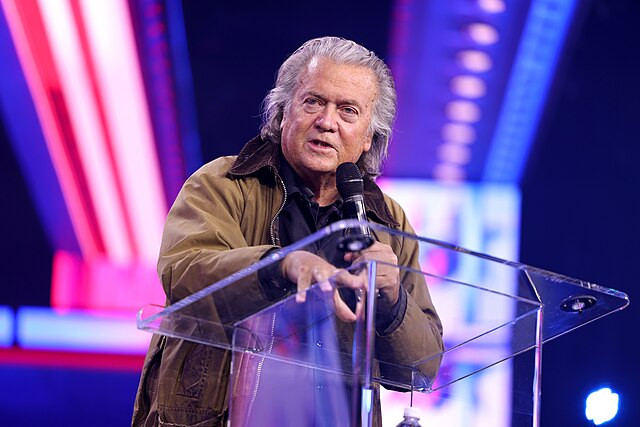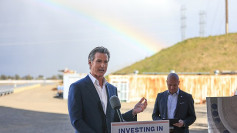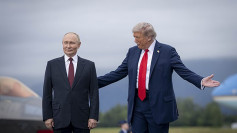Steve Bannon, a longtime ally of President Donald Trump and former White House strategist, pleaded guilty Tuesday to a fraud charge stemming from his involvement in the "We Build the Wall" fundraising campaign, which sought private donations to construct a border barrier along the U.S.-Mexico border.
Under the terms of a plea agreement with prosecutors, Bannon admitted to a single count of scheme to defraud, securing a three-year conditional discharge that allows him to avoid prison time if he stays out of legal trouble. The agreement bars him from fundraising for charitable organizations in New York and from using or selling donor data collected through the initiative.
Appearing in a Manhattan courtroom, Bannon formally acknowledged his role in misleading donors, responding "yes" when asked if he pleaded guilty to the fraud charge. Prosecutor Jeffrey Levinson said, "The parties have worked out a plea agreement. Mr. Bannon will plead guilty to count 5 of the indictment, which is scheme to defraud in the indictment. He will receive a conditional discharge."
Bannon, 71, arrived in court wearing a brown barn jacket, his gray hair brushed back. He signed court documents at the defense table before Judge April Newbauer confirmed his intention to plead guilty.
His attorney, Arthur Aidala, later defended the decision to settle, saying, "Mr. Bannon deserves credit. He wants to fight. Everyone knows Steve Bannon-he always wants to put up a fight." Aidala added that he advised Bannon to accept the plea because he believed a jury trial in Manhattan would be unfair.
Outside the courtroom, Bannon remained defiant, calling the case against him "political persecution" and urging Attorney General Pam Bondi to investigate New York Attorney General Letitia James and Manhattan District Attorney Alvin Bragg, both of whom pursued legal action against him.
"Letitia James is the existential threat to the Trump administration," Bannon said after the hearing.
Bragg defended the outcome, stating, "This resolution achieves our primary goal: to protect New York's charities and New Yorkers' charitable giving from fraud." He emphasized that the plea ensures Bannon "will not be able to serve as an officer, director, or in any fiduciary position, or fundraise for, any charitable associations with assets in New York State."
Bannon was first charged in federal court in 2020 alongside three co-defendants for his role in defrauding donors to the "We Build the Wall" campaign. The initiative, which launched in 2018, raised over $20 million with promises that all funds would go toward building a private border wall. Prosecutors alleged that Bannon and his associates instead funneled hundreds of thousands of dollars for personal use, including paying a secret salary to project leader Brian Kolfage.
Bannon's federal case was cut short when Trump granted him a last-minute pardon in January 2021. However, presidential pardons apply only to federal charges, allowing Manhattan prosecutors to pursue a parallel case at the state level.
Two of Bannon's co-defendants, Kolfage and Andrew Badolato, pleaded guilty in federal court and were sentenced to prison. A third defendant, Timothy Shea, was convicted at trial and also sentenced.
Bannon's guilty plea marks his second criminal conviction in recent years. In 2022, he was sentenced to four months in federal prison for contempt of Congress after defying a subpoena from the House committee investigating the January 6, 2021, Capitol riot. He served his sentence at a Connecticut federal prison and was released in October 2023.
Bannon had been preparing an aggressive defense for the upcoming trial, which was set to begin March 4. His attorneys had recently filed motions to dismiss the case, arguing it was an "unconstitutional selective enforcement of the law." With the plea agreement in place, those motions are now moot.






